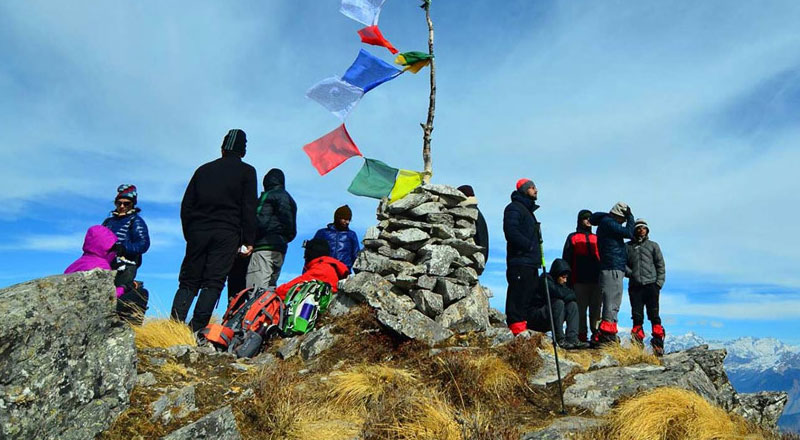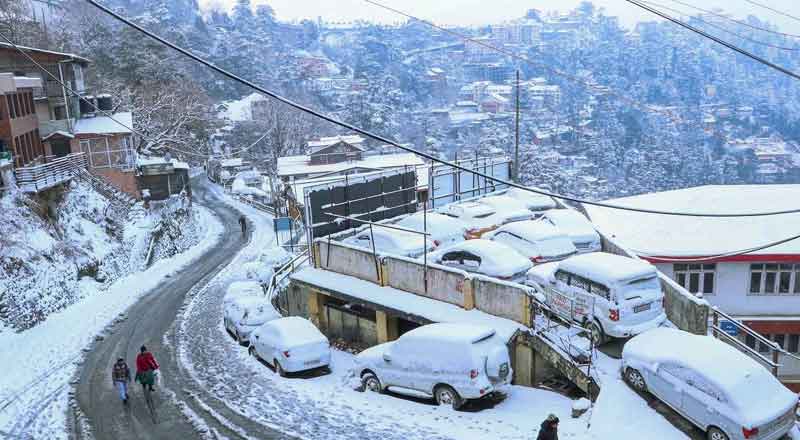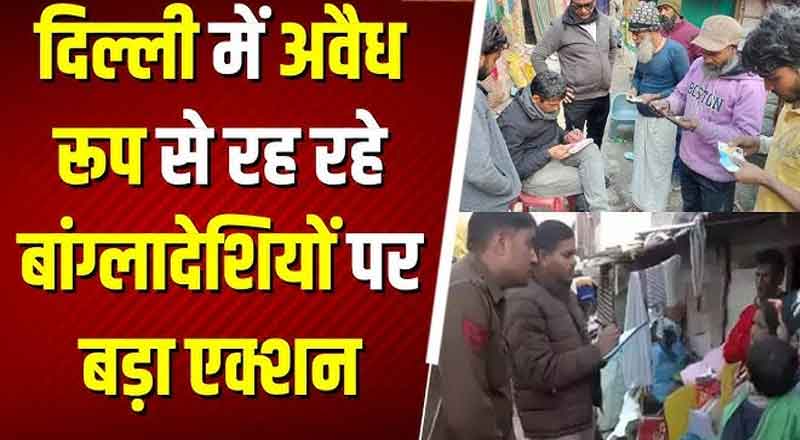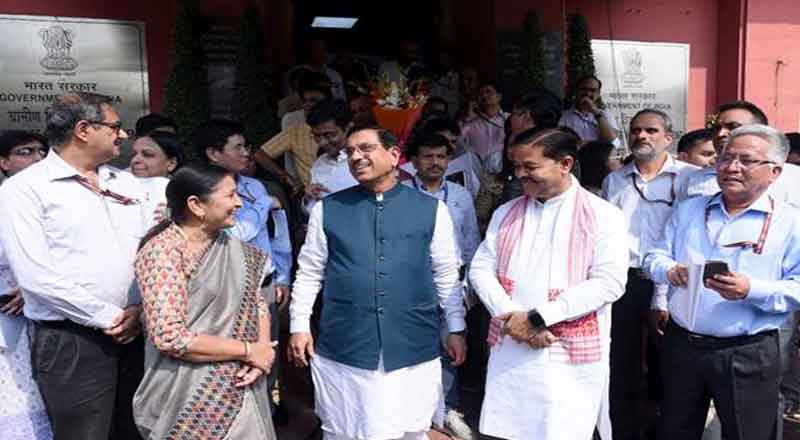The strategy being taken to restrict/control by the Government to social problems such as human trafficking, drug abuse, HIV and to improve literacy in North-Eastern region during the last five years are as under:
(i) While it is the primary responsibility of respective State Governments and Union Territory Administrations (UTs) to take necessary steps for preventing and countering human trafficking as “Police” and “Public Order” are State-List subjects under the Seventh Schedule to the Constitution of India. The Ministry of Home Affairs (MHA) has been supplementing the efforts of the State Governments by undertaking various initiatives and measures in this regard. MHA has provided financial assistance to the tune of Rs 98.86 crores under “Nirbhaya Fund” to all States and UTs during the financial years 2019-20 and 2020-21 for strengthening the existing Anti Human Trafficking Units (AHTUs) and for establishing new AHTUs covering all districts of the States and UTs. MHA also provides financial assistance to States and UTs for holding “Judicial Colloquiums” and “State level conferences” on periodic basis for sensitizing judicial and police officials and to make available to them updated information on latest provisions of law relating to human trafficking. MHA has also been issuing advisories and guidelines to States on preventing and countering the crime of human trafficking. Further, the National Investigation Agency Act, 2008 was amended in 2019 to authorise the National Investigation Agency to investigate cases of human trafficking under Sections 370 and 370A of Indian Penal Code having inter-State and international ramifications.
(ii) The Ministry of Social Justice and Empowerment (MoSJE) is implementing the National Action Plan for Drug Demand Reduction (NAPDDR) in the country including the 8 North Eastern States under which financial assistance is provided to (i) ‘State Governments/ Union Territory (UT) Administrations for Preventive Education and Awareness Generation, Capacity Building, Skill development, Vocational training and livelihood support of ex-drug addicts, Programmes for Drug Demand Reduction by States/UTs etc. and (ii) ‘NGOs/VOs for running and maintenance of Integrated Rehabilitation Centres for Addicts (lRCAs), Community based peer Led intervention (CPLI) for early Drug Use Prevention among Adolescents and Outreach and Drop In Centres (ODIC) and (iii) Addiction treatment facilities (ATFs) in Government Hospitals’.
A Toll-free Helpline for de-addiction, 14446 is being maintained by the Ministry for providing primary counseling and immediate referral services to the persons seeking help through this helpline. Ministry through its autonomous body National Institute of Social Defence (NISD) and other collaborating agencies like SCERTs, Kendriya Vidyalaya Sangathan etc. provides for regular awareness generation and sensitization sessions for all stakeholders including students, teachers, parents etc.
MoSJE launched Nasha Mukt Bharat Abhiyaan (NMBA) in 372 identified districts including 67 districts of North Eastern States with an aim to create awareness about ill effects of substance abuse among the youth, with special focus on higher education institutes, university campuses, schools and reaching out into the community and garnering community involvement and ownership of the Abhiyaan. In the North Eastern Region, so far 16,50,309 people have been reached under NMBA including 23027 women, 55441 youths, and 2126 educational institutions.
(iii) National Aids Control Programme under the Ministry of Health and Family Welfare, is implementing the National AIDS and STD Control Programme (NACP) since 1992 to respond to the HIV epidemic across country including in the North Eastern Region. Currently, phase-V of the NACP is under implementation as a fully funded Central Sector Scheme through State/UT AIDS Control Societies (SACS) for the period of 1st April 2021 to 31st March 2026. North Eastern States has been focused under NACP Phase-V across the care continuum of HIV prevention-detection-treatment.
Integrated action plans have been prepared by SACS in these States for tailored HIV response through comprehensive three-pronged strategy of prevention, detection and treatment for HIV supported through critical enablers of awareness generation, laboratory services and strategic information management with communities being the center of response. Funds under NACP to the SACS in the North Eastern States are released as Grant-In-Aid based on the annual action plan submitted by the respective SACS.
Prevention of new infections is augmented through periodic awareness generation and community-led targeted interventions. North-east multimedia campaign on HIV is being implemented to raise awareness about HIV in these States. North-Eastern Council has been engaged to work with various stakeholders on various aspects including access to social protection schemes.
Early detection of HIV is being done through counseling and testing facilities while free lifelong anti-retro viral (ARV) medicines are provided to people living with HIV(PLHIV) through Anti-Retroviral Therapy(ART) centers and link-ART centers. As on September 2022, 1692 HIV counseling and testing centers, and 104 ART and link-ART centers were operational in the States in north-eastern region. The Government is periodically undertaking 360o review with SACS in the north-eastern States to review the progress and recommend actions to strengthen the response in these State.
(iv) The Ministry of Education, in order to improve adult literacy rate, implemented a Centrally Sponsored Scheme of Adult Education, namely Saakshar Bharat in the rural areas of 404 districts in 26 States and one UT, that had adult female literacy rate of 50 percent and below as per Census 2001, including North Eastern States, since October 2009. The scheme was extended upto 31.03.2019. Under the scheme of Saakshar Bharat, the principal target was to impart Functional Literacy to 70 million non-literates including 12 million minorities. Around 100.8 million learners (including 9.81 million minorities) appeared in the bi-annual assessment tests conducted by National Institute of Open Schooling (NIOS) from August 2010 to March 2018, out of which 76.39 million learners (including 7.50 million minorities) had successfully passed the assessment and were certified as literate.
Further, a Centrally Sponsored Scheme of Adult Education “Padhna Likhna Abhiyaan” was being implemented in rural and urban areas of 33 states/ UTs, including North Eastern States, during the financial year 2020-22, with a target of making 48.16 lakh adult non-literates as literates.
Government of India has recently approved a new Centrally Sponsored Scheme, namely, “New India Literacy Programme (NILP)” with the aim to support the States and Union Territories, including all North Eastern States, in promoting literacy among non-literates in the age group of 15 and above, across the country covering 5 crore non-literates, including minorities, during the implementation period from 2022-27. The scheme has been approved with a financial outlay of Rs.1037.90 crore including Central share of Rs.700.00 crore and State share of Rs.337.90 crore.
This information was given by Minister of Development of North Eastern Region Shri G. Kishan Reddy in a written reply in the Lok Sabha today.





